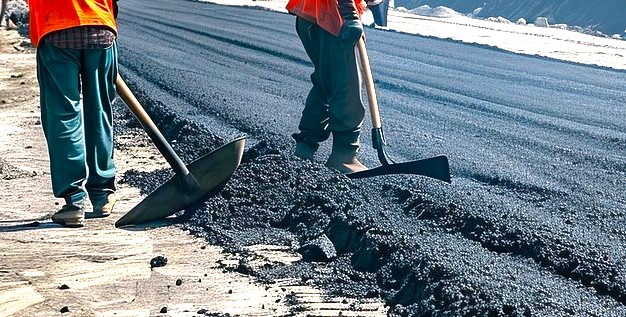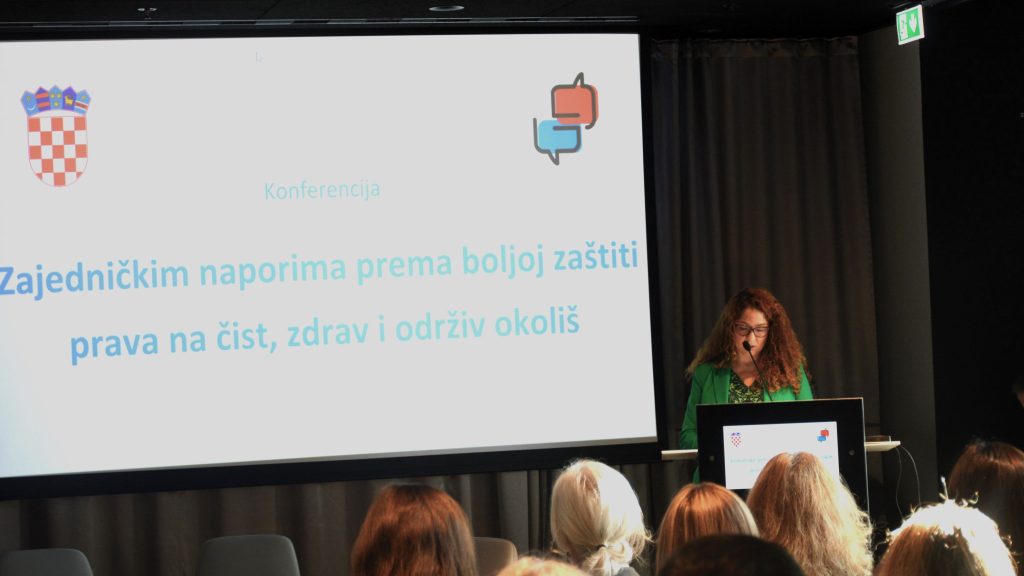Working in the heat is a human rights issue. More specifically, protecting workers from working in extreme heat is a human rights issue, primarily the right to work and to healthy and safe working conditions. It is also related to the right to health, even the right to life, and due to climate change the right to a clean, healthy and sustainable environment.
Hazards of working in extremely high temperatures
This issue concerns a large number of people who work outdoors: in construction, people who build or repair roads and use extremely hot materials, people who clean the streets and do landscaping, farmers, fishermen, delivery people, postmen, vendors in markets and other outdoor places, firefighters, police officers, especially those who regulate traffic, and others.
The European Agency for Safety and Health at Work (EU OSHA) points out that extreme heat can cause significant health problems such as heat exhaustion, heat stroke and other heat-related illnesses. Symptoms can include dizziness, headache, nausea, visual disturbances, tingling and numbness in the arms and legs, muscle cramps and pain, rash, swelling and others. Also, higher temperatures for longer periods of time can increase the risk of injury due to fatigue, lack of concentration, poor decision-making and other factors.
Ombudswoman Tena Šimonović Einwalter, in a statement for the specialized portal Klimatski.hr, emphasized that in addition to workers who work outdoors, which is currently in focus due to extreme heat, workers who work indoors in conditions where machines and processes heat up the space are also at risk. “And then there are those who work at extremely low temperatures during the summer, for example in cold storage warehouses, and who then have to go out into the summer heat.”
She also emphasized that it is important to look at this topic through the filter of equality and combating discrimination based on socio-economic status, education, health, age and other grounds. Jobs involving difficult working conditions are often poorly paid, and the people who perform them usually have lower levels of education and lower socio-economic status. Also, for some groups (poorer health, older age and the like) high temperatures and large temperature differences are even more dangerous than they are for the average person.
More broadly, climate change hits those most vulnerable the hardest, and working at very high temperatures is no exception. It has also been reported that Europe is a continent that is getting warmer at the fastest rate.
Data and guidelines from relevant institutions and organizations
The European Environment Agency stated in its climate change risk assessment that 60,000-70,000 premature deaths due to heat stress were recorded in Europe during the record-breaking summer of 2022. It specifically highlighted the protection of outdoor workers among the priorities of EU public policies and called for the establishment of obligations to protect outdoor workers from extreme heat and the introduction of strong mechanisms for the implementation of these obligations. It cites the fact that extreme temperatures and frequent heat waves in southern Europe have led to heart attacks and deaths of outdoor workers, especially those working in agriculture, construction, road maintenance and waste collection.
The International Labour Organization (ILO) reported that extreme heat leads to more than 22 million occupational injuries and almost 19 thousand work-related deaths worldwide each year. The European Trade Union Confederation (ETUC), the umbrella organisation of trade unions in Europe, warns that, according to data from the ILO, deaths related to work in hot weather in the EU increased by as much as 42% between 2000 and 2020. The ETUC is therefore calling for the urgent adoption of an EU directive to restrict work in high temperatures.
Namely, there are currently no legally binding provisions at the EU level that protect workers from extremely high temperatures. However, recently there have been guidelines from the European Agency for Safety and Health at Work (EU OSHA) on working in hot weather.
Some member states have already taken certain steps in their national legislation, for example Italy and Spain. All employers in Croatia are currently, when it comes to protecting workers from adverse weather conditions (low and high outdoor temperatures), obliged to act in accordance with the instructions and guidelines of the competent public health institute in the field of occupational medicine, which is their obligation under the Ordinance on occupational safety. Responsible employers should also use the aforementioned guidelines from EU OSHA on working in hot weather.
It is time for better regulation of work in the heat in Croatia
However, the time is ripe, especially when we are witnessing record temperatures and climate change, for even broader and more specific protection of workers in Croatia, or for considering more detailed regulation of work in certain weather conditions: red or orange warnings from the State Hydrometeorological Institute or when temperatures exceed a certain level. The Ombudswoman, as the national institution for the protection of human rights and the central equality body, will support this and advocate for Croatia to take a step in this direction.
In the Report on the Audit of the Efficiency of Climate Change Adaptation in the Republic of Croatia, the State Audit Office made several recommendations that also relate to this area, including identifying the groups most vulnerable to the impacts of climate change within vulnerable sectors, their needs, and conducting an analysis and designing adaptation measures for vulnerable groups in accordance with the legislative framework. The Ombudswoman believes that it is also necessary to improve the legislative framework, that is, to introduce restrictions such as those already mentioned, which are in place in some other countries.
In conclusion, climate change brings extreme heat and, as things stand, the situation will only get worse and working in the heat will become increasingly risky. Croatia has a responsibility to act: analyze the current legislation, hear the warnings and recommendations of experts and institutions from various fields and involve workers, i.e. unions and employers, in everything, and then prepare concrete changes.
The Ombudswoman’s recommendations to the Ministry of Labor, Pension System, Family and Social Policy will also go in this direction, precisely for the purpose of better regulation of working in the heat, with the aim of protecting the right to work, i.e. to healthy and safe working conditions, and the right to life and health.





